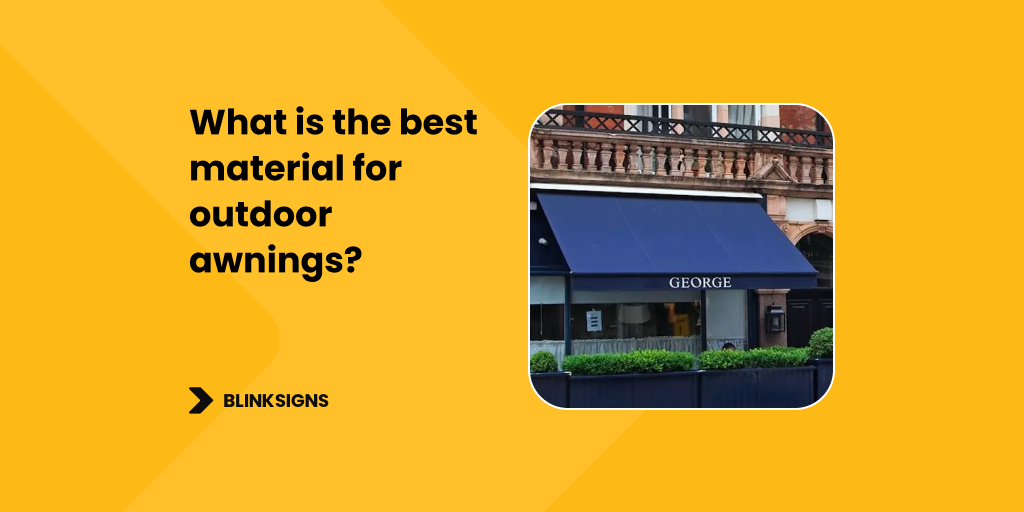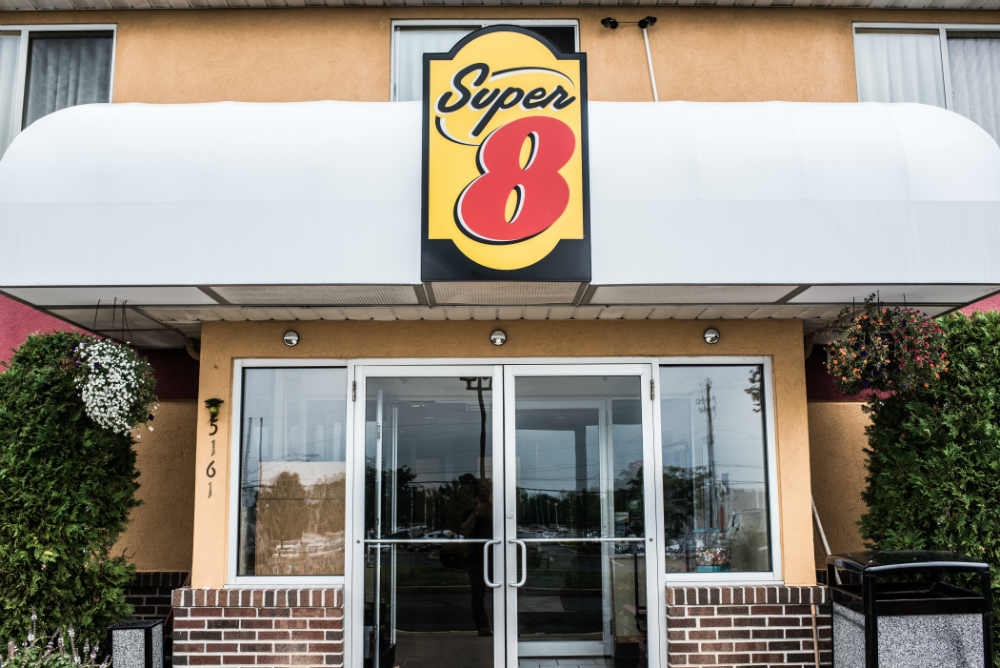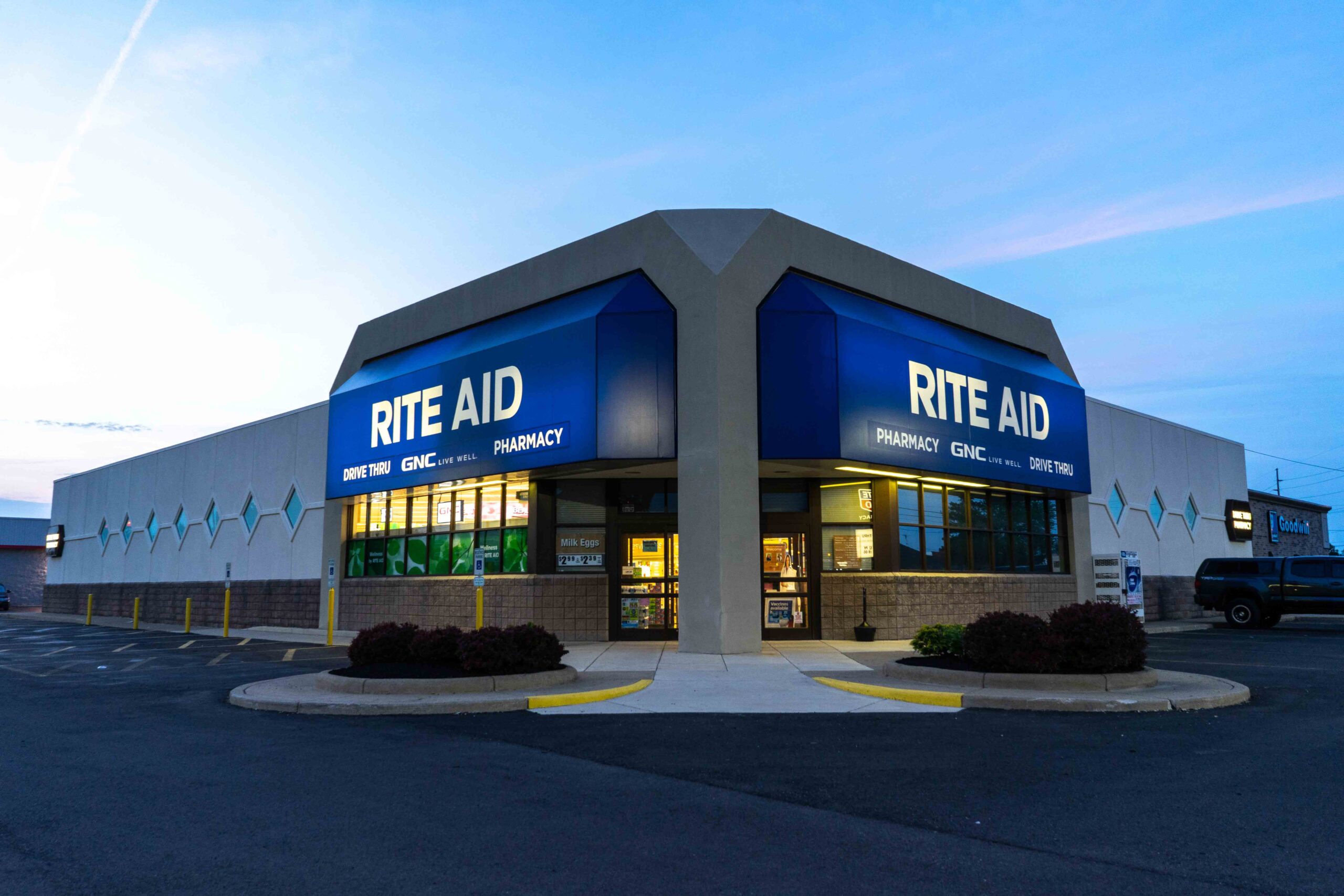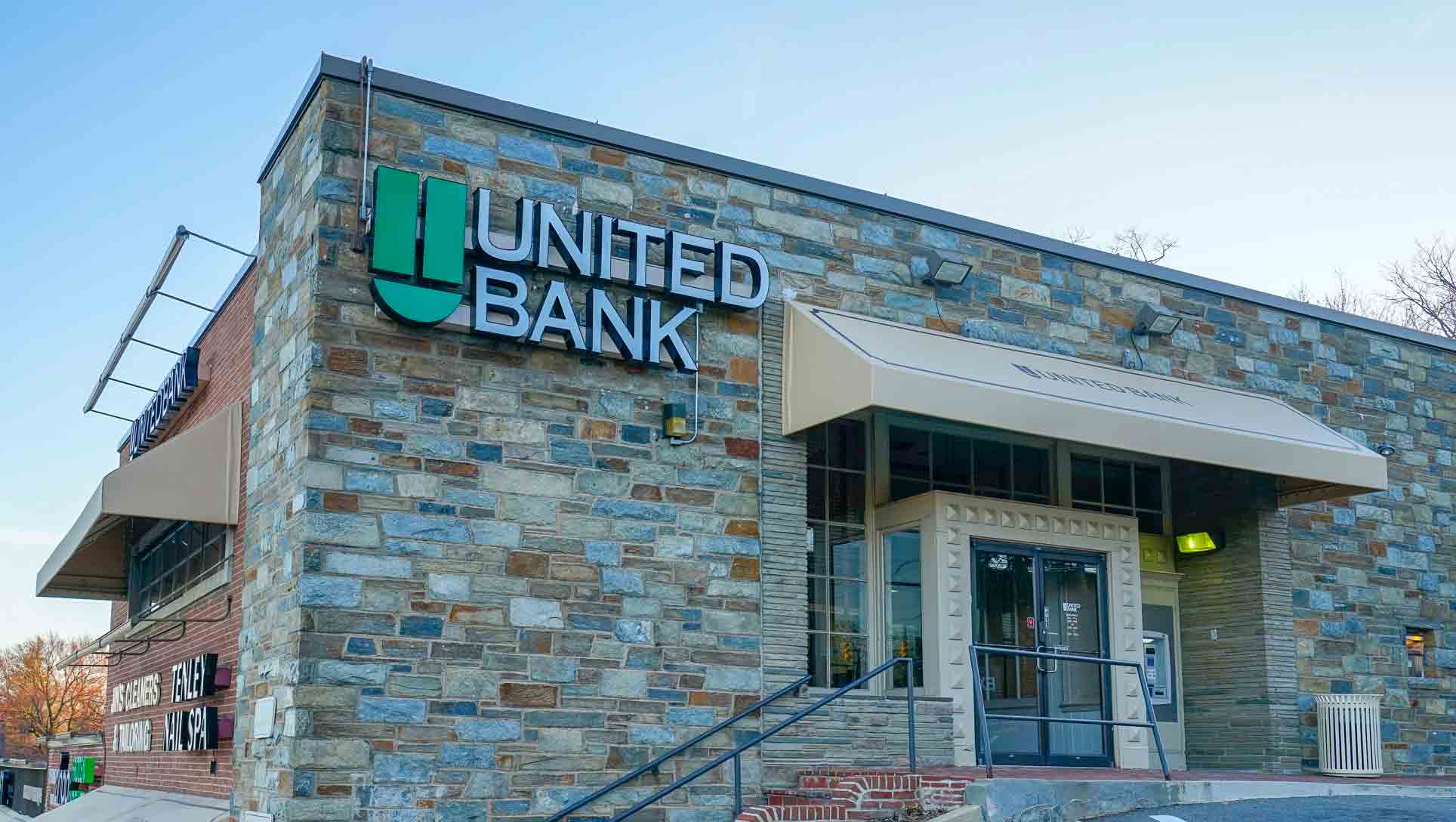
What is the best material for outdoor awnings?
The best materials for outdoor awnings is metal, canvas, vinyl, and acrylic. Metals blend durability and aesthetics, while canvas offers functionality in various styles.
Vinyl’s appeal lies in its water-resistant nature, making it perfect for commercial uses. Though a bit pricier, acrylic stands out for its resilience against fading and weather damage.
However, choosing the “best” material often depends on individual needs, where balancing longevity, aesthetics, and cost is crucial. Stick around as we dissect how each option might be the perfect shade solution for your outdoor space.
Understanding Outdoor Awnings

Commercial Awning
Let’s explore the world of outdoor awnings, understanding their function, importance, and the various types available on the market. Like those you might find at Home Depot, outdoor awnings serve as protective shelters, shielding your exteriors from harsh weather conditions. They’re essential additions to homes and commercial establishments alike.
Custom awnings allow you to tailor the design and size according to your needs. These can be a charming addition to your patios or storefronts, providing a blend of functionality and aesthetics. Awnings and canopies are interchangeable terms, referring to the structures providing shade and protection from the elements.
Modern awnings come in various shapes and designs, reflecting contemporary architectural trends. You’ll find many options, from retractable designs to stationary ones. Storefront awnings, for instance, provide shade and enhance visibility and curb appeal.
Exterior awnings are particularly important for protecting windows and doors from the sun, rain, and snow. To conclude, canopies and awnings can help transform an outdoor space into a relaxing, shaded retreat. They truly are an integral part of the outdoor setup, serving both practical and aesthetic purposes.
Benefits of Metal Awnings

Metal Awnings Rite AID
Diving into the benefits of metal awnings, we’ll find they’re durable and sturdy and offer a sleek, modern aesthetic that can elevate any outdoor space.
When you search for ‘metal awnings near me’, you’ll quickly discover the versatility of these structures. They’re available in various designs, from modern metal awnings that add a contemporary touch to commercial metal awnings that offer practicality and style.
| Benefits | Residential Use | Commercial Use |
| Durability | Perfect for protecting homes | It withstands heavy use. |
| Aesthetic | Modern metal awnings enhance curb appeal. | Attractive commercial building awnings |
| Versatility | Protects windows and doors | Ideal for patios and outdoor seating |
Metal building awnings are a fantastic choice for both residential and commercial properties. Modern metal window awnings can transform a simple window into a statement piece. Additionally, ‘residential metal awnings near me’ searches will show how they can shield your home from the elements while adding value.
Indeed, metal awnings for commercial buildings are equally beneficial. They provide shade, shelter, and an appealing aesthetic that can attract customers. So, whether you’re a homeowner or a business owner, investing in metal awnings is an intelligent move.
Canvas Awnings: A Close Look
While metal awnings have their merits, we shouldn’t overlook the value of canvas awnings, which offer a unique blend of aesthetics and functionality. Canvas awnings are popular for outdoor awnings because of their versatility and wide range of design options. Various styles, from traditional to contemporary, are available to complement any architectural design.
If you’re searching for “awnings near me,” you’ll likely come across various canvas options. For those seeking a personal touch, “custom awnings near me” is a common search term, with many providers offering bespoke designs to meet your specific needs.
Commercial canvas awnings are also popular for businesses, adding a professional and welcoming appearance to any storefront. They are durable and can withstand the elements, making them ideal for external awnings.
For those looking for “fabric awnings near me,” canvas is a top choice because of its durability and ease of maintenance. Importantly, Blinksigns offers professional services for “awning installation near me,” ensuring that your awning is safely and correctly installed.
Exploring vinyl awnings
We will now explore the world of vinyl awnings, which offer their own advantages for outdoor use, as we shift our focus to another type of material. These outside awnings are ideal for commercial settings because they withstand the elements.
Vinyl stands out among awnings for several reasons:
- Vinyl is highly durable and water-resistant, making it perfect for commercial awnings and canopies facing rough weather conditions.
- They come in various colors and styles, making them a fantastic choice for custom awnings and canopies that truly reflect your brand.
- Vinyl is a popular material for commercial retractable awnings, offering flexibility and ease of use.
- Modern commercial awnings often feature vinyl because of its sleek, professional look and long-lasting properties.
Furthermore, commercial window awnings made of vinyl not only provide shade and weather protection but also enhance your business’s curb appeal.
Whether running a coffee shop or a retail store, vinyl awnings offer a stylish, durable, and practical solution for your outdoor shading needs. Vinyl is a formidable force in the world of commercial awnings and canopies.
Polyester Awnings: Pros and Cons
Shifting our attention from vinyl, let’s now consider another excellent material for outdoor awnings, polyester, and examine its pros and cons. If you’re searching for ‘awnings for sale near me,’ polyester is a popular choice that often pops up. It’s a versatile material, making it perfect for commercial awnings near me and for business awnings.
One of the critical advantages of polyester is its durability. It’s resistant to wear and tear, handling harsh weather conditions admirably. This makes it perfect for shops, stores, and custom awnings for businesses. It’s also lightweight, which facilitates easy installation and maintenance.
However, it’s worth mentioning that polyester awnings, while durable, may not be as long-lasting as some other materials. They can fade over time, especially when exposed to the sun for extended periods. This may affect the aesthetics of your storefront awnings near me.
In terms of cost, how much are awnings made from polyester? They’re more affordable than those made from materials like metal, but prices can vary based on the size and design.
Fiberglass Awnings and Their Advantages
Diving into another viable option for outdoor awnings, we can’t overlook the advantages of using fibreglass. If you’re scouting for door awnings for sale, a fibreglass option might be ideal. Unlike a wooden awning kit, fibreglass is more durable, lighter, and requires less maintenance.
When looking for deck awnings near me, you’ll notice the prevalence of fibreglass options. This is because of its superb performance in various weather conditions. It’s a material that won’t rust, warp, or rot, ensuring your awning remains intact for years to come.
Here are some distinct advantages to fibreglass awnings:
- Versatility: Fibreglass is suitable for canopy awnings, building awnings, small awnings, industrial awnings, and business awnings.
- Durability: It withstands harsh weather, ensuring longevity.
- Low Maintenance: Fibreglass, unlike wood, doesn’t need regular painting or sealing.
- Cost-effective: Fibreglass offers a balance of cost and longevity compared to other materials.
Wood Awnings: Aesthetic and Durable
While fibreglass has merits, let’s not discount the charm and durability that wood brings to the table when used for outdoor awnings. Wood awnings are aesthetic and durable, providing a natural, earthy appeal that complements any outdoor setting.
Despite years of exposure to the elements, we’ve seen wood-made, used mobile home awnings for sale. They provide excellent protection from the sun, similar to parasol awnings, but with a unique rustic appeal. Wood’s natural resistance to weathering makes it an excellent choice for long-lasting solutions.
Wood is a popular material for vintage window awnings because of its timeless aesthetic appeal. It’s a material that never goes out of style, and its versatility allows it to fit into any architectural design.
Typically found in commercial settings, dome awnings showcase the durability of wood construction. Despite their enormous size, they remain sturdy, providing ample shade and protection.
Evaluating acrylic awnings
Acrylic awnings, known for their resilience and versatility, deserve our attention next. We’ve found them an excellent choice for homeowners seeking durability and style in their outdoor coverings. Acrylic, a synthetic fabric, offers a range of attractive features that set it apart from other materials.
- To begin with, acrylic is water-resistant, not just water-repellent. This means it can withstand heavy downpours without letting water seep in, keeping your outdoor space dry.
- Additionally, the acrylic fabric is fade-resistant. Its color remains vibrant even after prolonged exposure to sunlight, giving it a fresh look for years.
- Third, it’s resistant to mildew and mold. Unlike natural fabrics, acrylic doesn’t absorb water, preventing the growth of harmful organisms.
- Lastly, acrylic is a thermoplastic. You can repeatedly heat and cool acrylic without it losing its shape or strength.
However, while acrylic has many advantages, it’s not without limitations. It tends to be more expensive than other materials, and while it’s water-resistant, it’s not waterproof. It’s also less breathable compared to natural fabrics, which may make it less comfortable in tropical climates. Despite these minor drawbacks, we believe acrylic remains a top contender for the best awning material.
Maintenance of Different Awning Materials

Outdoor Awnings
Having explored the strengths and weaknesses of various materials, let’s now focus on how different awning materials hold up with maintenance.
Firstly, canvas awnings, while famous for their affordability and wide range of colors and patterns, can be expensive to maintain. They’re prone to mildew and rot and need regular cleaning and proper storage during inclement weather.
On the other hand, vinyl awnings are a breeze to maintain. They can easily be cleaned with a hose and mild detergent, making them resistant to mildew. However, they’re less durable than other materials and can be prone to cracking over time.
Acrylic awnings, like canvas, can attract mildew, but they’re resistant to fading and weather damage. A good cleaning now and then is all they need.
Lastly, metal awnings, typically aluminium, are the most durable and require the most minor maintenance. They resist all forms of weather, though they can dent and may need occasional repainting.
Key Factors to Consider When Choosing Materials
When selecting materials for outdoor awnings, it’s essential to consider factors such as durability, maintenance, cost, and aesthetic appeal. We’ll explore these factors further to help guide your decision.
Durability is essential. We need materials that can withstand harsh weather conditions and have a long lifespan. Maintenance should be minimal, as frequent repairs or replacements can be expensive and time-consuming. Speaking of cost, it’s important to balance quality with affordability. High-priced materials don’t always mean superior quality. Finally, aesthetic appeal matters. Our outdoor awnings should complement our home’s exterior and enhance curb appeal.
To summarize, here are the key factors to take into account:
- Durability: The material should withstand harsh weather conditions.
- Maintenance: It should require minimal upkeep.
- Cost: We should balance quality with affordability.
- Aesthetic appeal: The awning should complement the exterior of your home.
Choosing the suitable material for your outdoor awning isn’t just about function. It’s also about style and value for money. Considering these factors, we can make a more informed decision and choose the best material that suits our needs and preferences.
Conclusion
So, we’ve explored various materials for outdoor awnings, from metal and canvas to vinyl, polyester, wood, and acrylic. Each has its pros and cons, and maintenance varies. When choosing, it’s crucial to ponder your specific needs, aesthetics, durability, and budget.
Remember, the best material for your awning suits your lifestyle and complements your outdoor space. Take your time, weigh your options, and make an informed decision. BlinkSigns are always available for help. Contact us and let us guide you to success.